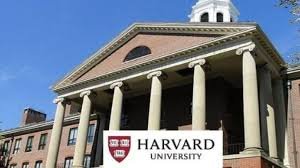In a dramatic policy move, the Trump administration on Thursday stripped Harvard University of its ability to enroll international students, effectively cutting off a vital segment of the university’s academic community and sparking intense backlash from higher education advocates.
The U.S. Department of Homeland Security announced it has terminated Harvard’s certification under the Student and Exchange Visitor Program (SEVP), a designation required for American universities to admit foreign students. As a result, Harvard is now barred from enrolling new international students, and current international students must either transfer to another SEVP-certified institution or risk losing their legal status in the United States.
The Reason Behind the Revocation
The decision stems from an escalating standoff between Harvard and Homeland Security Secretary Kristi Noem. Last month, Noem issued a demand that Harvard hand over detailed records related to international students’ alleged “illegal and violent activities.” The university was given a deadline of April 30 to comply, but federal officials claim Harvard failed to provide sufficient documentation.
In response, Secretary Noem made good on her threat to decertify the institution. “This is a matter of national security and institutional accountability,” the department stated. “No university is above the law.”
Impact on Harvard and Its Students
The impact on Harvard is profound. International students make up a significant portion of its population—data from the 2024–25 academic year shows 6,793 international students are enrolled, representing 27.2% of the student body. Overall, the university hosts nearly 10,000 international scholars from over 140 countries.
With its SEVP certification revoked, Harvard cannot process new visas or maintain the immigration status of existing students, unless the decision is reversed or legally challenged.
Harvard’s Response
Harvard issued a forceful response, condemning the federal move as politically motivated and legally unfounded.
“This retaliatory action threatens serious harm to the Harvard community and our country, and undermines Harvard’s academic and research mission,” university spokesperson Jason Newton said. “We are fully committed to maintaining Harvard’s ability to host international students and scholars, who enrich the University – and this nation – immeasurably.”
The university pledged to support affected students and explore legal avenues to challenge the decision.
What’s Next?
Legal experts predict Harvard will likely seek an emergency injunction or pursue a lawsuit against the Department of Homeland Security, arguing that the action violates due process and may infringe on academic freedom.
Meanwhile, international students at Harvard are left in limbo—forced to choose between leaving the country, transferring schools, or awaiting a possible reversal of the decision.
The move has reignited debate about the intersection of immigration policy, higher education, and political power—raising the question: What happens when one of the world’s most prestigious universities finds itself at odds with the federal government over who belongs on its campus?

